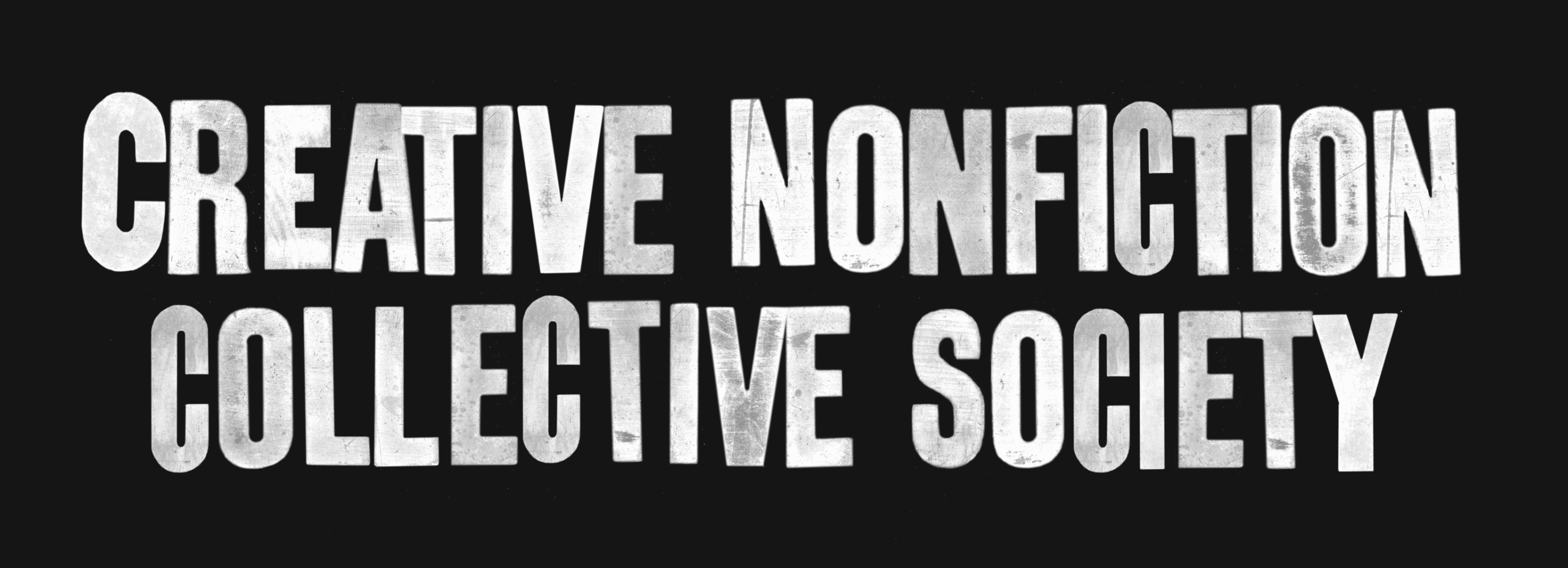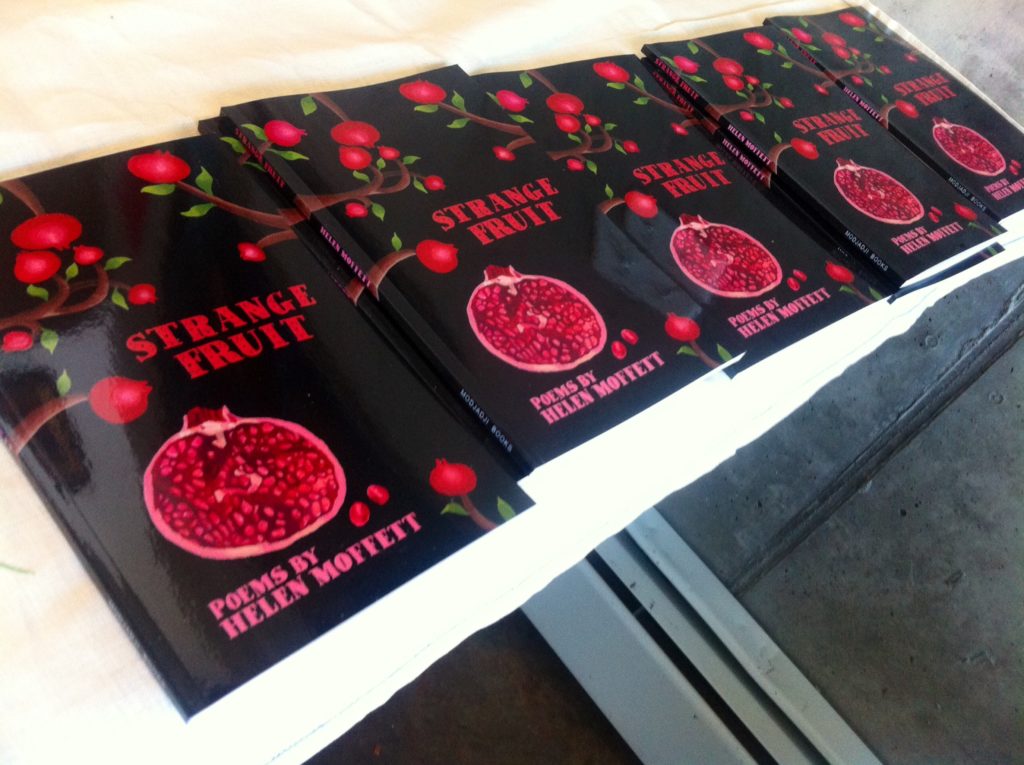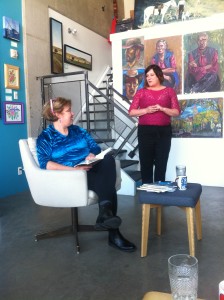CNFC workshop at Loft 112 in Calgary on Sunday, April 19, 2015
Photos & blog by Dale Lee Kwong
Can poetry constitute creative nonfiction?
The question is one I had never considered. When I did, I discovered I’ve unconsciously never given my poetry the same respect as my essays. For me, nonfiction held more interest than fiction and I categorized poetry as less valid. After attending a workshop featuring South African author and editor, Helen Moffett, I now feel excitement and liberation in using poetry as a tool with purpose in nonfiction.
Tackling the question with great gusto, Helen cited examples of South African poems over the past 60 years that have effected change, documented healing and served as tools of revolution. A self-described ‘recovering academic’, Helen confessed she didn’t write a poem until she was 42. A South African activist, she says “the movement of black protest poetry is (like) a glacier that feeds the way I write.”
Black urban male journalists who used writing as a form of activism were stopped by strict ‘banning orders’ that included house arrest, daily police check-ins, criminal charges for quoting those writers, and worse. In this culture, poetry emerged in South Africa as radical, in your face, subversion. While media was subject to government control, creative writers asked tongue-in-cheek, ‘What harm can poetry do?’
As Helen points out, “Poetry is a form of truth telling. It is not necessarily nonfiction.” South African censors were not able to do anything about information dispersed in the form of poetry, or truth telling disguised in the black tradition of spoken word. The poems were angry, deep, profound, powerful replies of what was happening in the political community. Poetry was telling uncomfortable truths, and no topic was taboo. From apartheid to feminist issues, the platform widened and writers now have the luxury to pay more attention to aesthetics.
Helen then shared from her poetry collection, Strange Fruit. It has been described as ranging from “comedic to bawdy to angry and melancholic”. Subject matter includes erections, baby showers, and challenges of infertility. Her reading was raw and bloody but beautiful and brilliant, a rare occasion in a workshop. How poignant her comment that, “Sometimes, the truth is so hard to tell, only a poem will do.”
Yes, poetry can be pure fiction but it can also be creative nonfiction. Though labels may be useful to me as an artist making sense of my own work, the knowledge doesn’t necessarily change what I write. If anything, I am challenged and liberated in knowing nothing is off-limits. I can more fully embrace the ability poetry has to provoke, incite, educate, expose, or heal, while addressing difficult real stories and subjects.
Thank you to CNFC for sponsoring a profound afternoon of words & wisdom.
Dale Lee Kwong is a Calgary poet, playwright, essayist and performer. Her work may be found in The Calgary Project, A Family By Any Other Name, Somebody’s Child and Modern Morsels. She appreciates the supportive nature of the CNFC membership.



One comment
Thanks for writing about this, Dale! Many of us were sorry to miss the workshop. I love that interesting distinction: “Poetry is a form of truth telling. It is not necessarily nonfiction.”